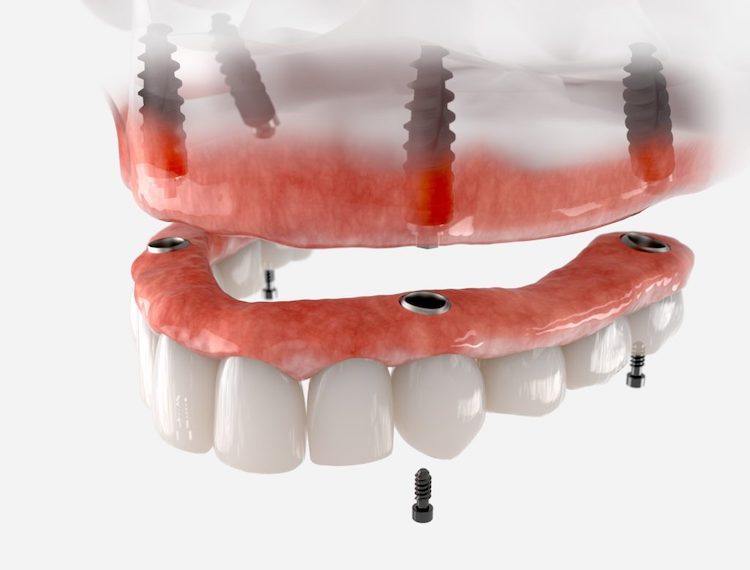Dental implants often provide a reliable and long-lasting solution for missing teeth. They offer a strong foundation for various dental restorations. Understanding these options can help patients make informed decisions about their oral health. Each restoration type offers unique benefits and considerations. Patients should consult with their dentist to determine the best option for their specific needs.

Crowns for Single Tooth Replacement
Crowns are a popular choice for single tooth replacement. They could restore both function and aesthetics to the mouth. The dentist attaches the crown directly to the implant post. This process effectively mimics the appearance and function of a natural tooth. Crowns come in several materials, each offering distinct advantages. The choice of material depends on the location of the implant and the patient’s specific needs. The dentist will guide the patient in selecting the most suitable material.
Bridges for Multiple Teeth Replacement
Bridges offer an effective solution for replacing multiple missing teeth. They span the gap created by the absence of teeth. The dentist anchors the bridge to implants, providing stability and support. Implant-supported bridges differ from traditional bridges. They do not rely on adjacent teeth for support, preserving the health of remaining teeth. This approach helps maintain the integrity of the patient’s natural teeth. Bridges could restore essential functions, such as chewing and speaking. They may also enhance the patient’s appearance, boosting confidence. The dentist will assess the patient’s oral health and recommend the most appropriate bridge design.
Full Arch Restorations
Full arch restorations are ideal for patients with significant tooth loss. They replace an entire set of teeth in either the upper or lower jaw. The dentist places several implants strategically in the jawbone. They then attach a full arch prosthesis to these implants. This prosthesis closely mimics the appearance and function of natural teeth.
Full arch restorations offer several benefits. They often provide stability and comfort, allowing patients to eat and speak with ease. These restorations also help maintain jawbone health, preventing bone loss. Patients should discuss this option with their dentist. The dentist will evaluate the patient’s oral health and bone density to determine suitability.
Overdentures
Overdentures offer a removable restoration option for patients. They fit securely over dental implants and are anchored with attachments. Overdentures provide improved stability compared to traditional dentures. They reduce gum irritation and discomfort, enhancing the patient’s comfort. Patients can remove them for cleaning, making them a practical choice. Overdentures require fewer implants than fixed restorations, making them a cost-effective option. Patients should consider their lifestyle and personal preferences when choosing overdentures. The dentist will provide guidance on the most appropriate solution.
Factors Influencing Restoration Choice
Several factors influence the choice of dental restoration. The number of missing teeth is a primary consideration. The patient’s overall oral health also plays a crucial role. Bone density in the jaw affects the feasibility of certain restorations. The patient’s budget and personal preferences are also important. Dentists assess these factors during consultations with the patient. They provide recommendations based on a comprehensive evaluation of the patient’s needs. Patients should ask questions and express any concerns they may have. This ensures they make informed decisions that align with their goals.
Care and Maintenance of Restorations
Proper care and maintenance are essential for the longevity of dental restorations. Patients should maintain good oral hygiene practices. Regular brushing and flossing are crucial to prevent plaque buildup. Patients should also attend regular dental check-ups. These visits allow dentists to monitor the health of the implants and restorations. Dentists can spot potential issues early and provide timely interventions. Patients should follow their dentist’s care instructions diligently. This prevents complications and ensures the long-term success of dental implants. Proper care enhances the overall success and satisfaction with the restoration.
If you’re missing teeth, dental implants could help. Dr. Vernon Sheen and his team are ready to help you make an informed decision about your oral care. Contact his office today to schedule a consultation and learn more about your treatment options.
